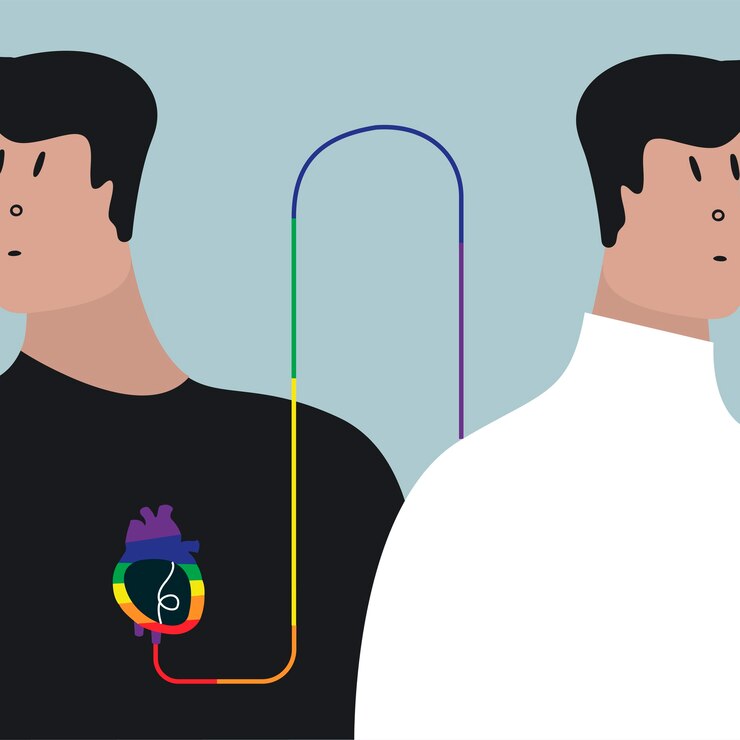
Navigating Bipolar Disorder and Substance Abuse: Simple Guide
Introduction: Bipolar disorder is a mental health condition characterized by extreme mood swings, including manic and depressive episodes. Unfortunately, individuals with bipolar disorder are at an increased risk of substance abuse. Understanding how to navigate bipolar disorder and substance abuse is essential for managing symptoms and promoting overall well-being. Let’s explore this topic in simple terms.
Understanding Bipolar Disorder and Substance Abuse: Bipolar disorder and substance abuse often co-occur, creating complex challenges for individuals affected by both conditions. Substance abuse can worsen mood symptoms and increase the likelihood of manic or depressive episodes. Conversely, bipolar disorder may increase the risk of substance abuse as individuals seek relief from their symptoms or attempt to self-medicate.
Common Substances of Abuse: Alcohol, cannabis, stimulants (such as cocaine or methamphetamine), and opioids are among the most commonly abused substances by individuals with bipolar disorder. These substances can affect mood regulation, exacerbate symptoms of bipolar disorder, and interfere with treatment effectiveness.
Effects of Substance Abuse: Substance abuse can have detrimental effects on physical health, mental well-being, relationships, and overall quality of life. It can worsen mood symptoms, impair judgment and decision-making, increase impulsivity, and lead to legal or financial problems.
Common Scenarios: Some individuals may turn to substances during manic episodes to amplify their high, while others may use them during depressive episodes to numb emotional pain. Unfortunately, substance abuse can exacerbate mood swings and interfere with treatment effectiveness.
Impact on Treatment: Substance abuse can hinder treatment for bipolar disorder by interfering with medication adherence and therapy outcomes. It can also worsen symptoms and increase the risk of relapse. Conversely, untreated bipolar disorder may lead to self-medication through substance abuse.
Navigating Bipolar Disorder and Substance Abuse:
- Seek Professional Help: Consult a healthcare provider or mental health specialist for personalized treatment options that address both bipolar disorder and substance abuse simultaneously.
- Build a Support Network: Surround yourself with supportive friends, family, or peers who understand your struggles and can offer encouragement and assistance.
- Identify Triggers: Recognize situations or emotions that may trigger substance abuse or mood episodes, and develop coping strategies to manage them effectively.
- Practice Self-Care: Prioritize healthy habits, including regular exercise, balanced nutrition, adequate sleep, and stress management techniques.
- Avoid High-Risk Situations: Steer clear of environments or individuals that may tempt you to engage in substance abuse, and engage in activities that support your recovery and stability.
Navigating Bipolar Disorder and Substance Abuse:
- Seek Professional Help: If you or someone you know is struggling with bipolar disorder and substance abuse, it’s essential to seek professional help from a healthcare provider or mental health specialist. They can offer personalized treatment options, such as medication, therapy, or substance abuse programs, to address both conditions simultaneously.
- Build a Support Network: Surround yourself with supportive friends, family members, and peers who understand your challenges and are willing to offer encouragement and assistance.
- Identify Triggers: Recognize triggers or situations that may lead to substance abuse or mood episodes, such as stress, relationship conflicts, or social pressures, and develop strategies to cope with them effectively.
- Practice Self-Care: Take care of your physical and emotional well-being by prioritizing healthy habits, such as regular exercise, adequate sleep, nutritious diet, and stress management techniques.
- Avoid High-Risk Situations: Minimize exposure to environments or individuals that may tempt you to engage in substance abuse and prioritize activities that support your recovery and stability.
Conclusion: Navigating bipolar disorder and substance abuse can be challenging, but with understanding, support, and proactive management strategies, individuals can overcome these obstacles and lead fulfilling lives. By seeking professional help, building a support network, identifying triggers, practicing self-care, and avoiding high-risk situations, individuals can effectively manage both conditions and improve their overall well-being.
Bipolar disorder and substance abuse often go hand in hand, but understanding the relationship between them is crucial for seeking help. Here’s what you need to know:
- Vulnerability: People with bipolar disorder may turn to drugs or alcohol to cope with mood swings or alleviate symptoms. Substance abuse can worsen bipolar symptoms and lead to more frequent mood episodes.
- Self-Medication: Using substances as a form of self-medication is common among individuals with bipolar disorder. However, this can create a cycle of dependence and exacerbate mental health issues.
- Impact on Treatment: Substance abuse can interfere with bipolar disorder treatment, making it less effective. It may also increase the risk of medication interactions and worsen overall health.
- Dual Diagnosis: Many individuals with bipolar disorder also have a co-occurring substance use disorder. This is known as a dual diagnosis, and treatment typically involves addressing both conditions simultaneously.
- Seeking Help: If you or someone you know is struggling with bipolar disorder and substance abuse, seeking professional help is essential. Treatment may include therapy, medication, support groups, and residential programs.
- Supportive Environment: Surround yourself with a supportive network of family, friends, and healthcare providers who understand both bipolar disorder and substance abuse. They can provide encouragement and guidance throughout the recovery process.
Understanding the relationship between bipolar disorder and substance abuse is the first step towards seeking help and reclaiming control over your health and well-being.
To seek medical advice, always consult a Doctor. Here are our recommended experts. Click here
To read more on Neurological Disorders. Click Here


